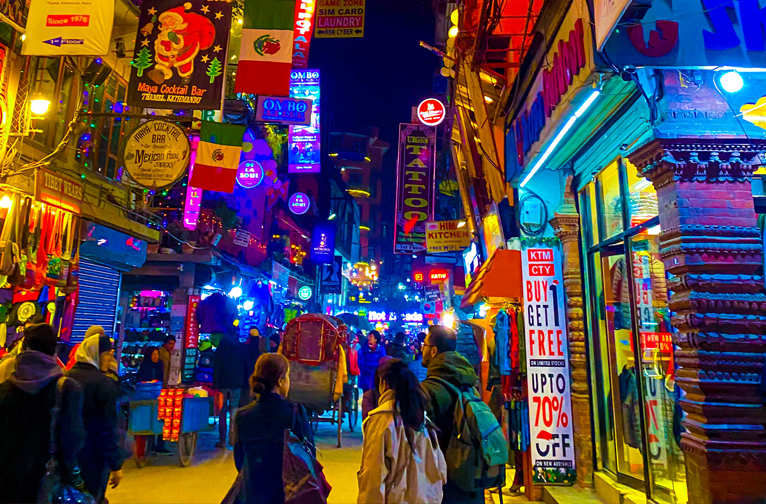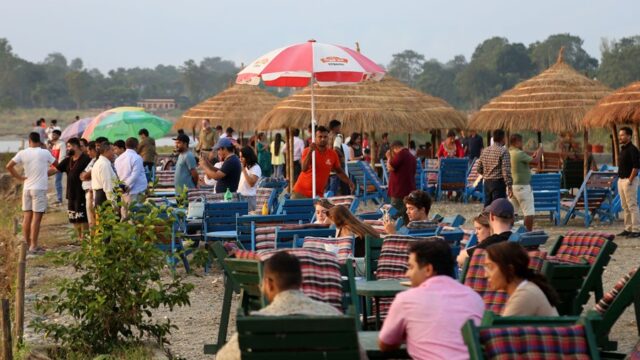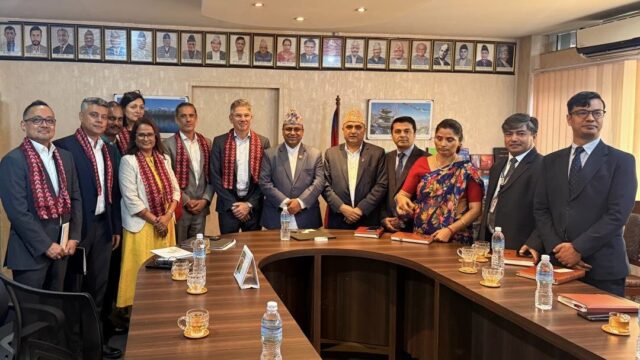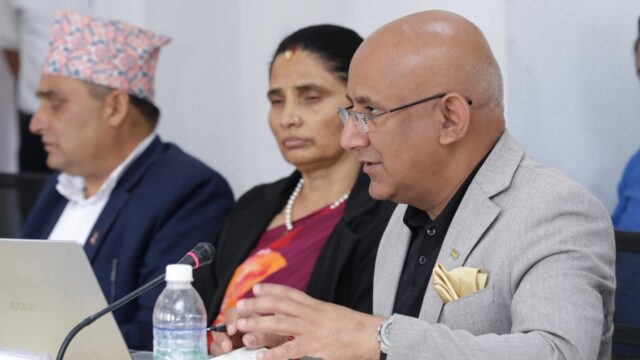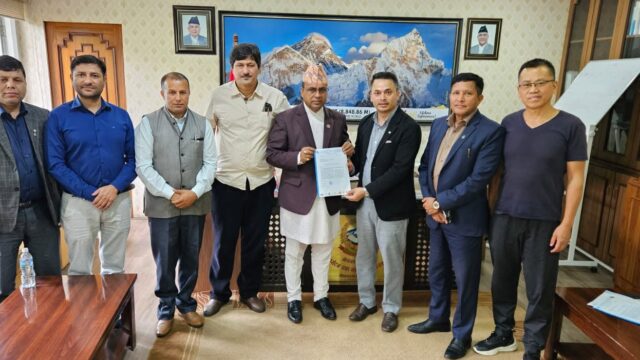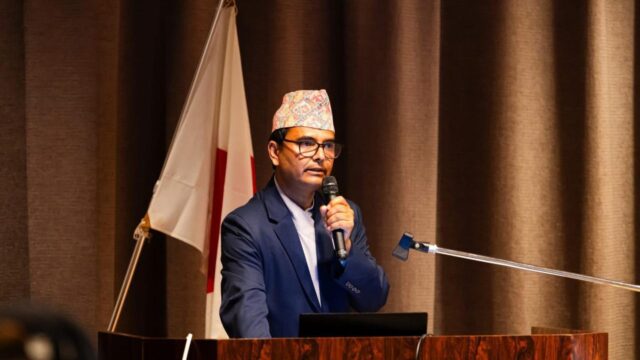As the night deepens in Thamel, Mahendra Maharjan from the nearby Chhaya Center finds himself unable to sleep. The cause of his sleepless nights is the incessant noise pollution that has taken over the area. After being temporarily halted during the COVID-19 pandemic, Thamel’s nightlife resumed operations this past April, sparking a renewed buzz in the area. The government’s decision to allow 24-hour operations in the Thamel and Durbar Marg areas has further fueled this activity.
To manage the thriving nightlife, local business owners have implemented a code of conduct aiming to maintain order and discipline. However, despite the guidelines, visitors who frequent the clubs and dance bars often disregard them, leading to a surge in noise pollution, according to Maharjan.
“The biggest problem with Thamel’s nightlife is the noise,” said Maharjan, pointing out that loud music from hotels and clubs has severely impacted the lives of residents. “We have repeatedly requested clubs and hotels to lower the volume, but there has been little to no response. Even when we report it to the police, the establishments may comply for a short period before reverting to the same disruptive behavior,” he added.
Maharjan is not alone in his concerns. Tourists staying in Thamel have also raised complaints about the inability to get a good night’s sleep, which is affecting their health, according to tourism entrepreneur Bhavishwar Sharma. Sharma, who is also a former president of the Thamel Tourism Development Council, noted that the failure to enforce the established code of conduct has led to dissatisfaction among locals, tourists, and business owners alike.
“Tourists frequently complain about the noise pollution,” said Sharma. “People drink excessively and leave glass bottles on the streets. The loud music playing late into the night makes it difficult for us to get any rest,” he explained, adding that authorities have not taken sufficient action to address these issues.
Thamel is home to 36,000 tourists on any given night, according to Sharma. Despite the increase in both domestic and international tourists since the pandemic, efforts to regulate Thamel’s nightlife have fallen short. Sharma mentioned that during his tenure, the Council collaborated with the District Security Council and local authorities to conduct bi-monthly inspections, but such oversight has decreased significantly in recent times.
Senior Superintendent of Police (SSP) Binod Ghimire from the Kathmandu Valley Police Office confirmed that the police are actively working to maintain security and collect complaints from locals to find solutions. “The area is secure in terms of law and order,” said SSP Ghimire, though he acknowledged that some complaints have been received about people causing disturbances on the streets late at night. The police have increased their presence in the Thamel and Durbar Marg areas and are quick to address issues such as overcharging by taxi drivers, he added.
The Thamel Tourism Development Council’s code of conduct for nightlife businesses includes mandatory noise control after 10 PM, ensuring safe transport for intoxicated patrons, maintaining uniform pricing, providing VAT bills, and requiring establishments to have functioning restrooms and security guards. It also emphasizes the need for artists to perform music and dance that reflects local culture, prohibiting indecent performances.
Badri Timalsina, General Secretary of the Thamel Tourism Development Council, expressed concerns that both hotel owners and patrons are not adhering to the code of conduct. He mentioned that the Council conducts regular monitoring and coordinates with the police to enforce stricter security measures. “We are committed to fully implementing the code of conduct. We urge all tourism businesses to follow the guidelines and cooperate,” he stated.
As Thamel’s nightlife continues to thrive, the challenge remains to strike a balance between business interests and the well-being of residents and tourists, ensuring that the area remains a vibrant yet livable part of Kathmandu.
